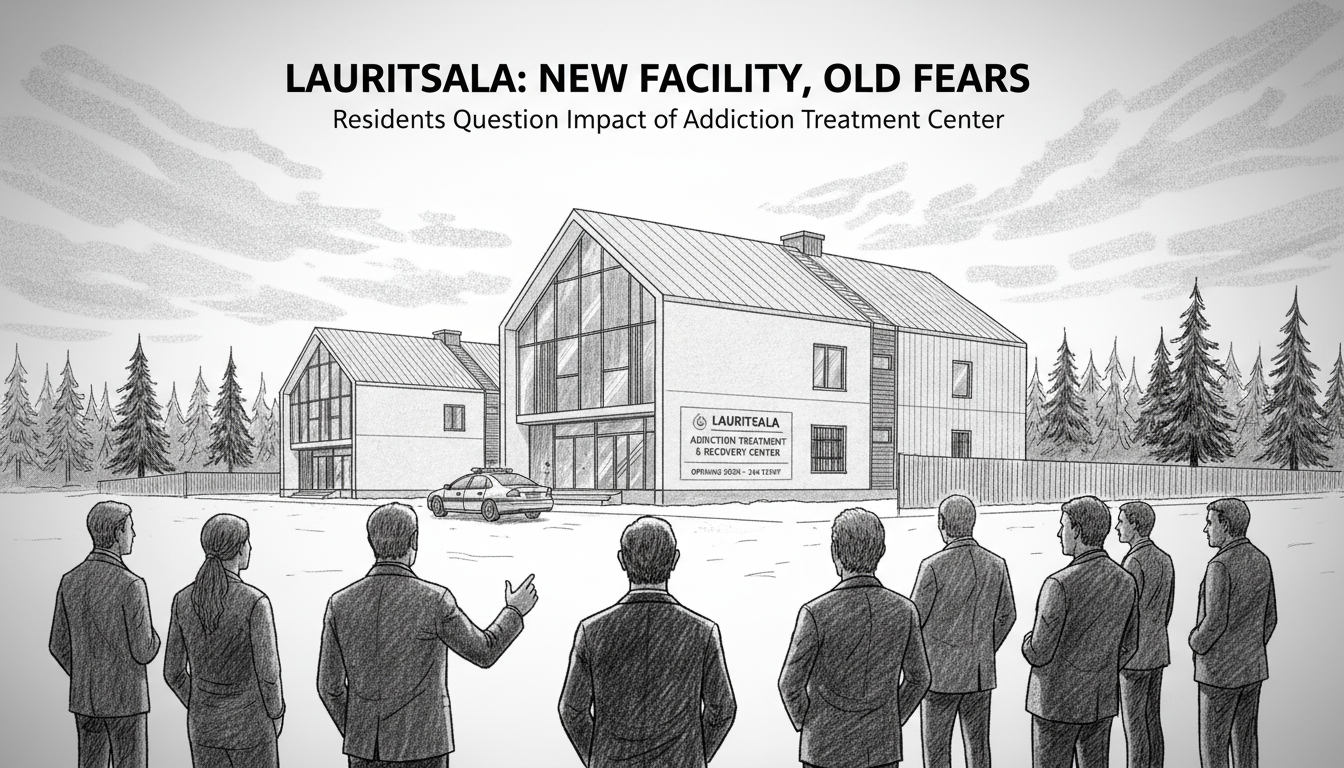Residents in the Lauritsala district of Lappeenranta expressed concerns about a new addiction and mental health facility coming to their neighborhood. Approximately ten local residents attended a community discussion at Lauritsala School on Thursday. They questioned whether the facility would increase the number of intoxicated people visible in public spaces.
The new Saimaanranta unit will contain 16 rental apartments for clients. Staff will be present around the clock according to Vesa Piikki, service manager for the South Karelia Welfare Region. The facility represents Finland's ongoing effort to address substance abuse through community-based care rather than institutionalization.
Finland has developed a distinctive approach to addiction treatment over recent decades. The country emphasizes harm reduction and social integration. This contrasts with more punitive approaches seen elsewhere. The Nordic welfare model typically prioritizes rehabilitation over punishment for substance abuse issues.
Local residents raised practical questions about security and neighborhood impact. They wanted assurances that the facility would maintain community safety standards. Such concerns are common when social service facilities open in residential areas across Nordic countries.
The exact moving date to the new Saimaanranta location remains undetermined. The current facility operates on Rintalankatu in the Hiessila area. The welfare region expects to gain access to the new premises in December.
This situation reflects broader tensions in Finnish social policy. Communities often support helping vulnerable populations but worry about local consequences. The challenge lies in balancing compassion with practical neighborhood concerns.
Similar debates have occurred throughout Finland as municipalities implement national health policies. The Nordic approach typically favors integrating services into communities rather than isolating them. This philosophy underpins Finland's housing-first policies for addressing homelessness and addiction.
International observers might find Finland's open discussion process noteworthy. The country maintains transparency about social service placements. This allows community input while proceeding with necessary facilities.
The facility's location in South Karelia places it in a region bordering Russia. This area has particular significance given Finland's recent NATO membership. Despite geopolitical changes, domestic social policies continue developing according to established Nordic principles.

